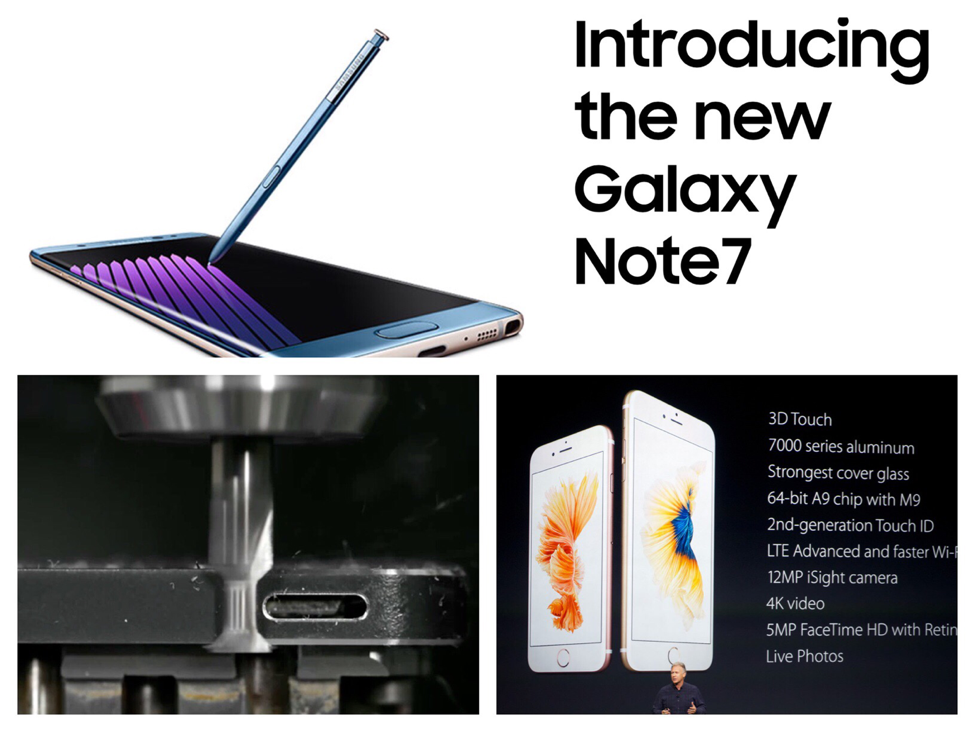But Samsung has just released their latest Galaxy Note and guess what? Like Apple, Samsung is competing heavily on hardware design and capabilities. Gone are the days when Samsung was trying to differentiate it’s new phones by adding oddball software enhancements like web scrolling with your eyeballs. Those Android tweaks for the most part didn’t work very well or people just didn’t use them. It looks like Samsung is downplaying differentiation through better software and agrees with Apple that hardware is where you need to be.
When I hear praise for the Galaxy Note 7, it seems to revolve around hardware items like:
- 5.7” AMOLED display
- Camera quality
- Battery Life
- Water resistance
- Wireless charging
- Stylus precision
As I was reading Mashable’s defense on why the Galaxy Note 7 is not overpriced. It hit me that this is another nail in the coffin of the argument that hardware will become irrelevant in the age of software platforms. Exactly what I said would happen, is happening. Hardware is actually becoming more important. As these software platforms elevate the value proposition of the portable device in totality, at least some consumers will be willing to pay more for mobile hardware.
But I was also struck by the comparisons of the Galaxy Note 7 to Apple’s iPhone products. The focus seems to have shifted away from software differences and towards hardware comparisons. Nobody is talking about the pros and cons of Android vs iOS and instead everyone is talking about screen colors and camera quality.
This is actually a positive move for Apple. Apple has been steadily working on iOS over the years to add widgets, multi-tasking, better maps, and now intelligent assistance. For a new flagship Android device to come out and Apple not have to hear about all the things that iOS can’t do is a remarkable turnaround from only a year or two ago. iOS has come a long way.
But better yet, the battlefield has shifted onto the field of Apple’s choosing. If there is one thing that Apple can do very well, it is design and manufacture high quality hardware. This new turn of events plays to Apple’s strengths perfectly. If I was Tim Cook I’d be gleefully unleashing the resources necessary to push the boundaries of what can be done with metal and glass and how they interact with electronic components.
No one else in the industry has the capability to do what Apple has done with mobile processors. I suspect that Apple may and try to replicate this success in other major component areas. Except for maybe Samsung, no one else has the volume to do this. And even Samsung, can’t go as far as Apple since they don’t control the operating system. That’s why they can’t offer an equivalent to 3D Touch yet.
But even if not owning the operating system wasn’t a disadvantage for Samsung, their Galaxy volume isn’t at iPhone levels. It’s mathematically impossible for Samsung to ever catch Apple in profitability when they sell so many fewer premium phones and yet try to match or surpass Apple in component quality. Samsung trying to outdo Apple in terms of hardware is like the Soviet Union of the 1980’s trying to outdo the United States in military buildup. They can try, but at what cost to their own health?
You can already see the cracks forming at Samsung. There is talk that they may not even offer a flat screen in the next Galaxy 8 even though many people dislike having to deal with working around the curved edges. Why? Because the cost of offering the curved glass is probably killing them. They need to pick either flat or curved and spread their fixed costs over greater volume. If Samsung goes all curved in the next iteration it’s because they couldn’t afford both.
So yes, if you’re sitting in Cupertino looking at the competitive landscape and how it’s shifting away from software comparisons towards hardware. You’re probably pretty pleased about now.
Related: Samsung's Profitability Paradox



 RSS Feed
RSS Feed